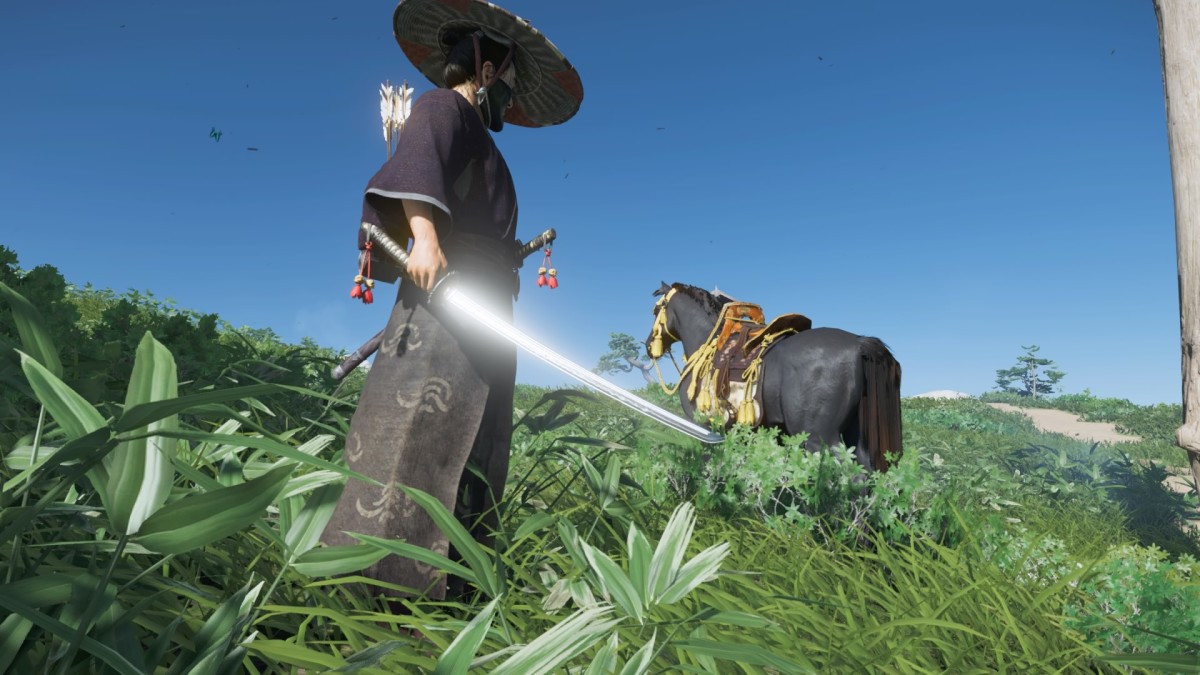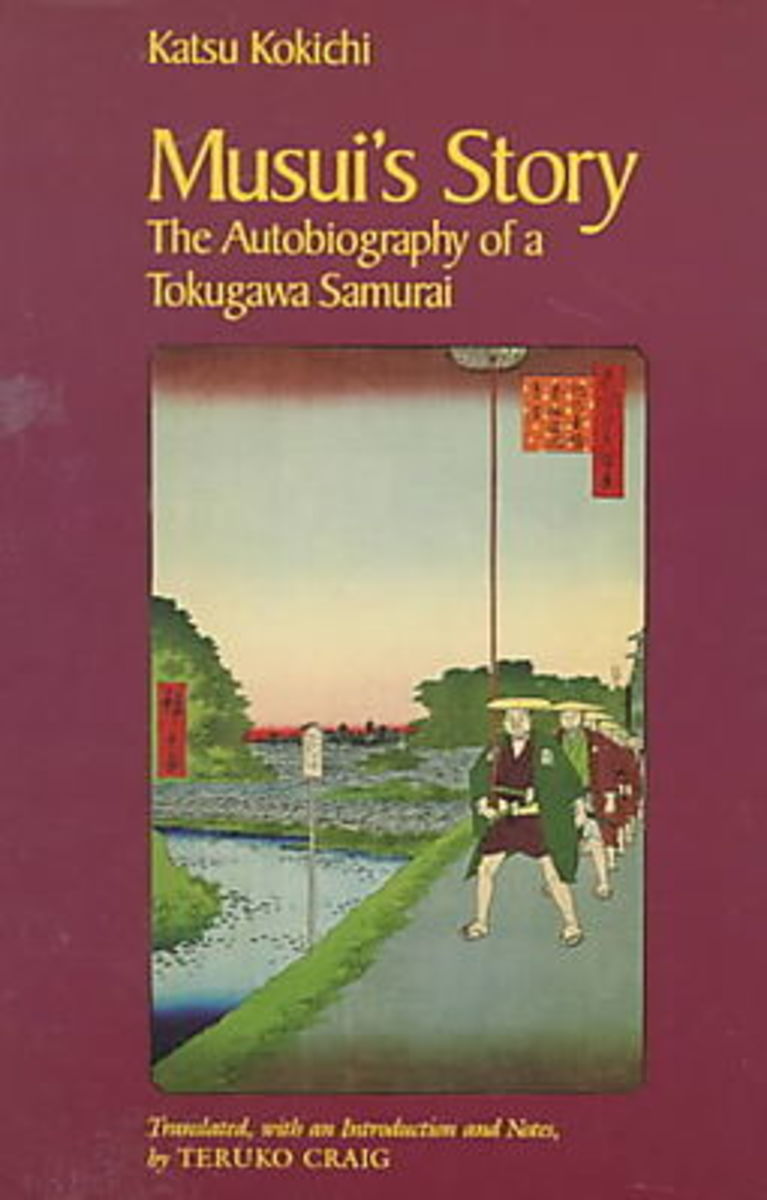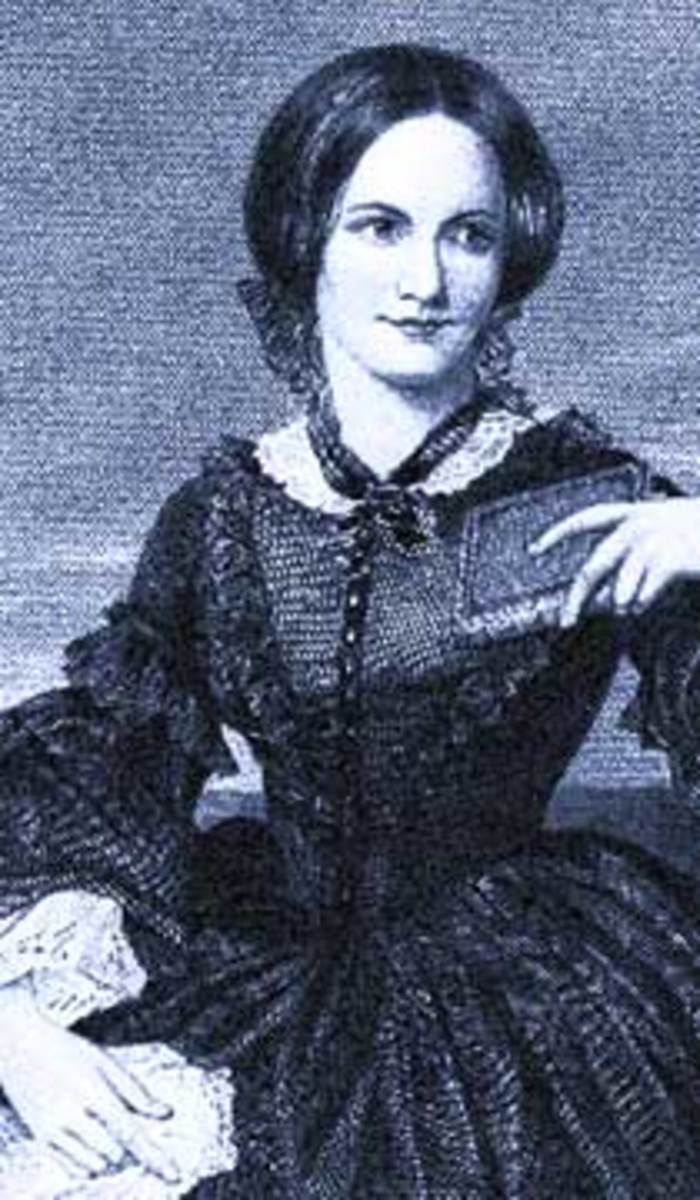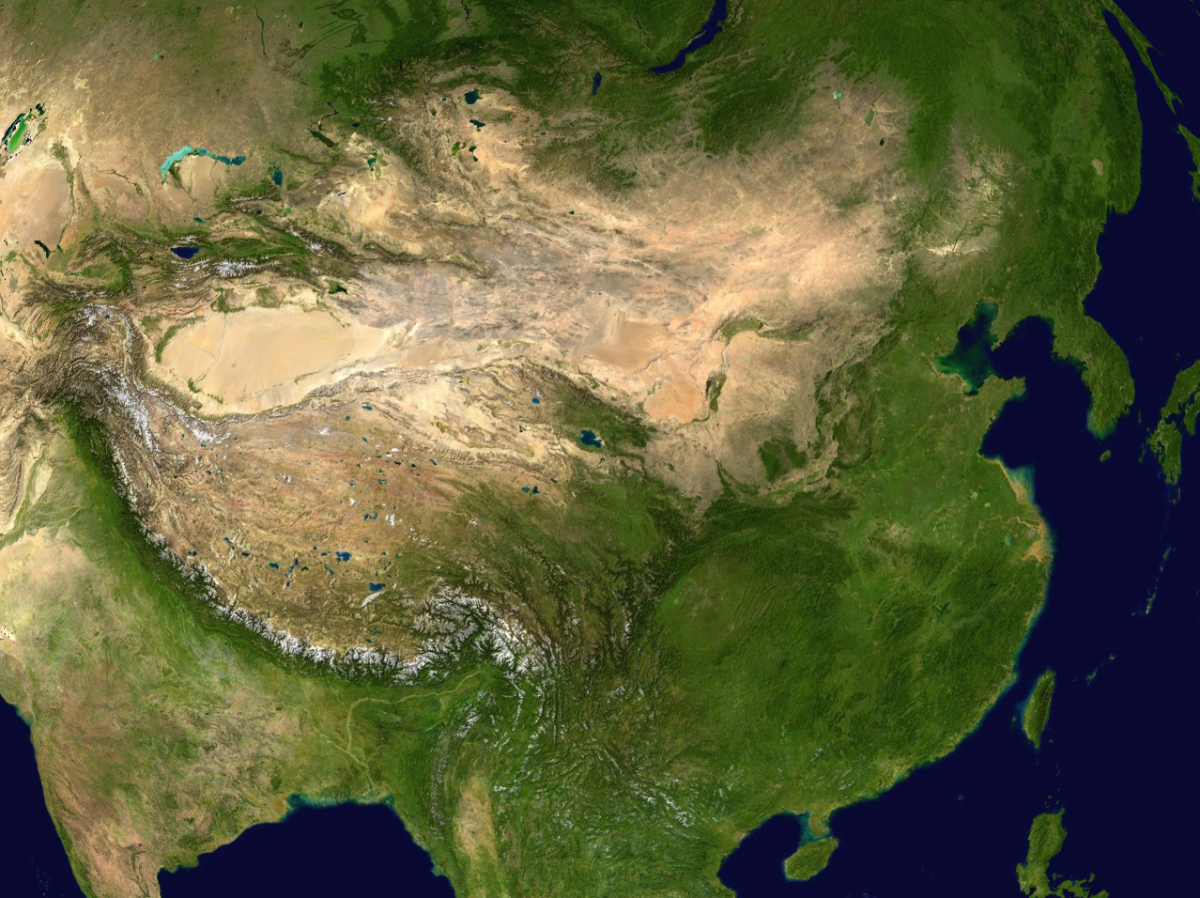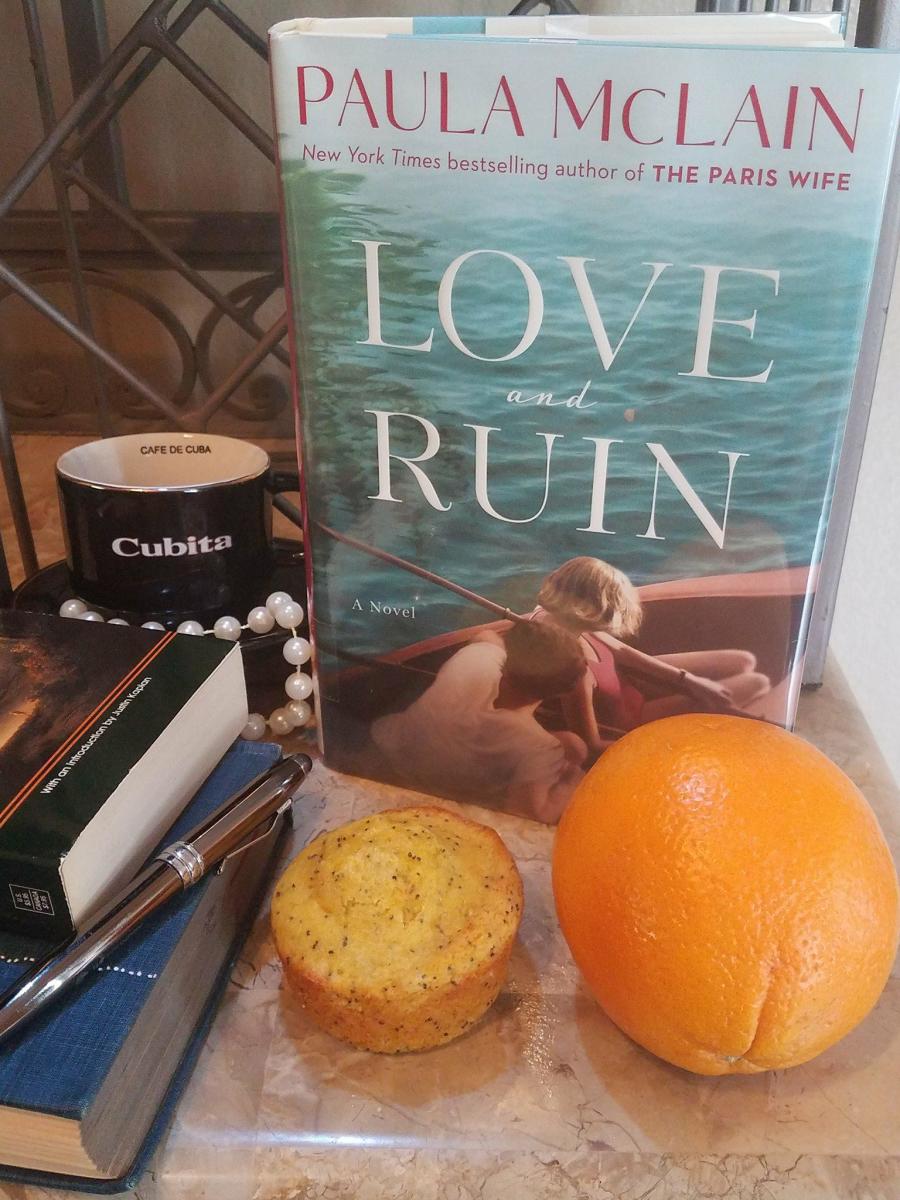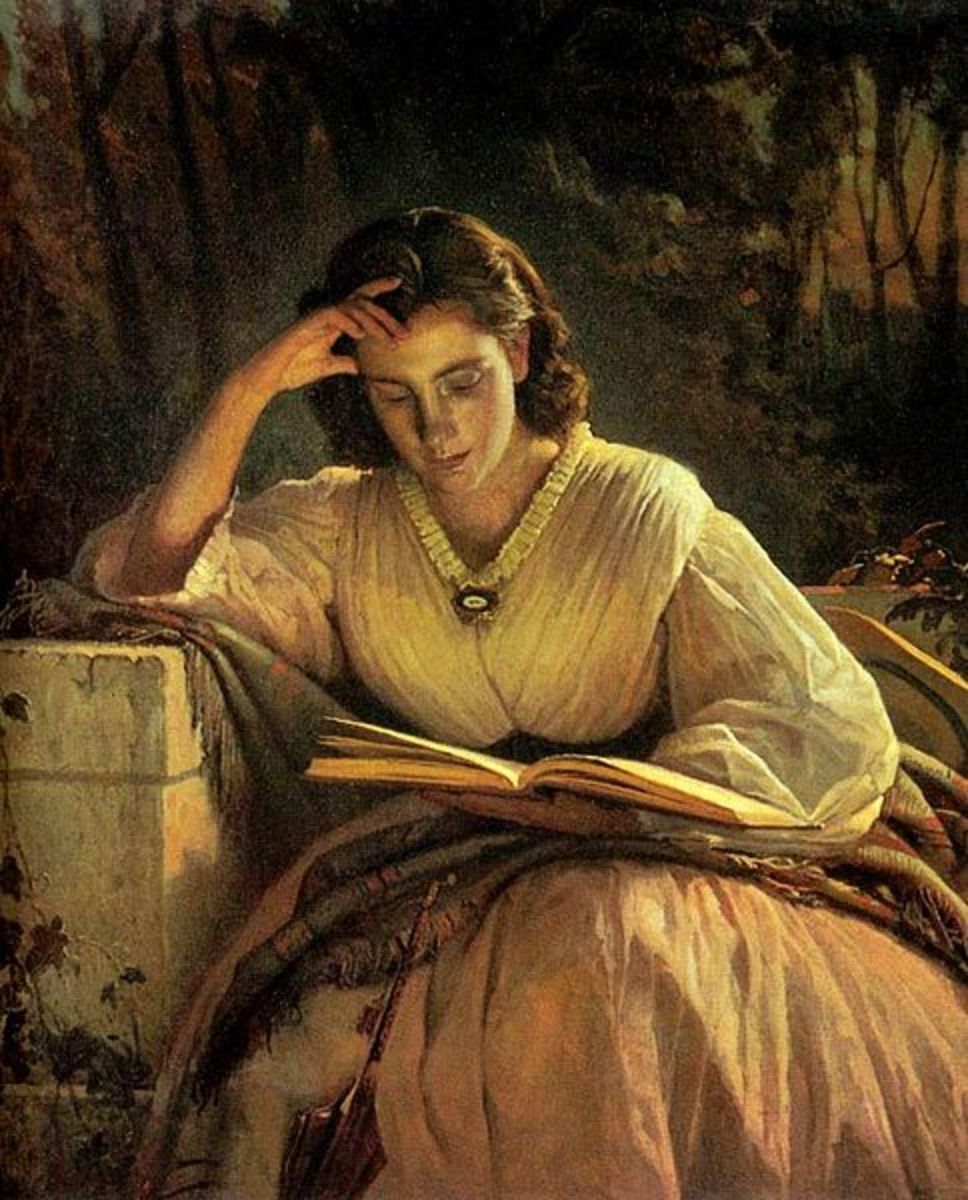Book Review: Our Lady of Kaifeng Part 1
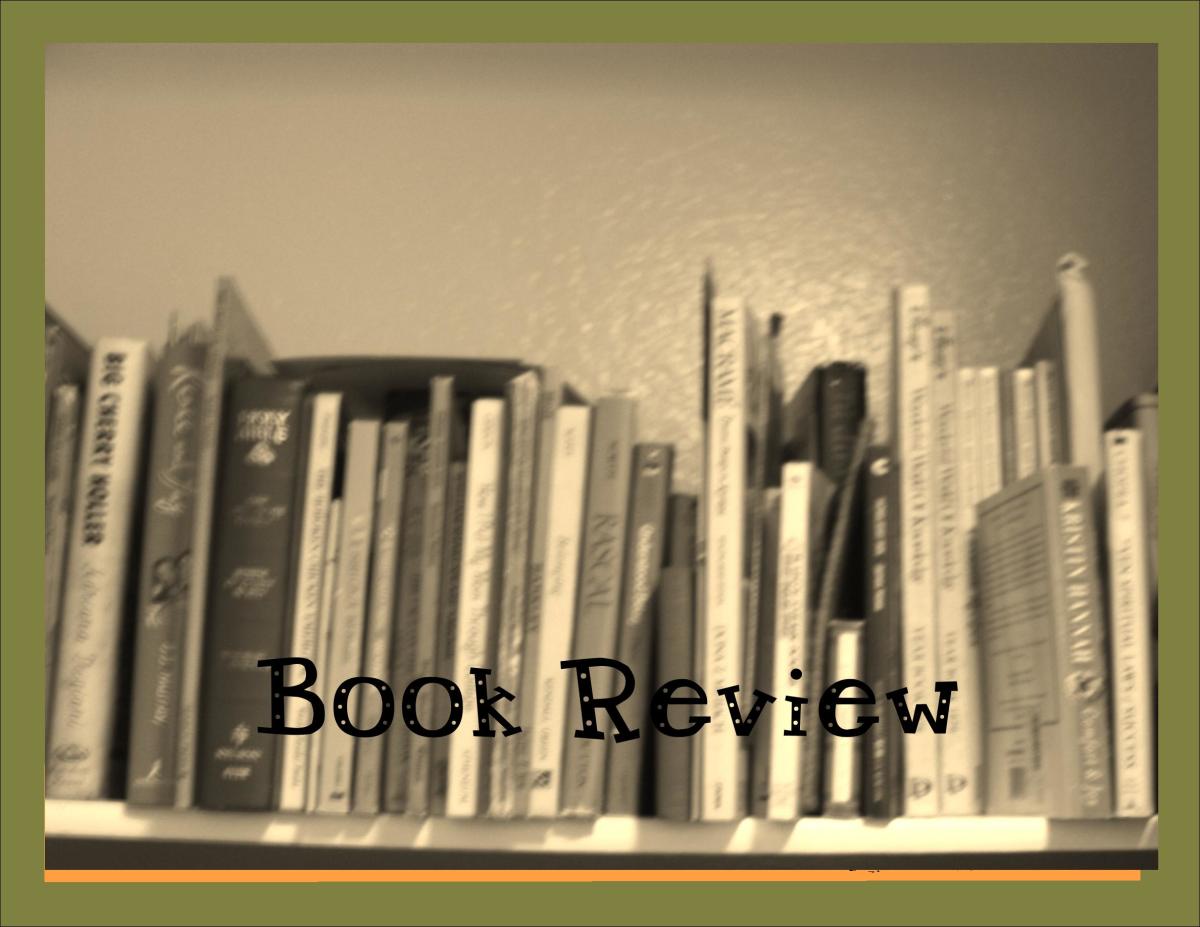
The novel Our Lady of Kaifeng is by Aya Katz and opens in the China of 1940. The main character in the story is Marah Fallowfield, an American who is teaching English courses at a school called Precious Blossoms. She taught previously at a Methodist School in China, and some of the nuns at Precious Blossoms are skeptical as to why she has decided to teach at a Catholic school, which she says she was drawn to because of its good reputation. Sesame is her former classmate from Rice Institute, and he also just happens to be teaching Latin courses at Precious Blossoms. Later we find out when Sister John of Ghent visits Marah’s room that she has a reproduction of a picture she has painted of Sesame, along with others of Joan of Arc and Bonnie and Clyde on her nightstand, which are all icons of sorts for her. What has drawn Marah to Precious Blossoms, and does it have anything to do with Sesame? I was intrigued to figure out the answers to various questions that popped up in my mind during the first several chapter of the novel.
Marah position as outsider in Kaifeng inspires her pupil Lotus to confide in her that she has a baby girl, and that she only married her husband because he could send her to school. So even though this story takes during the onset of World War II and the characters have to deal some very harrowing issues, such as considering what being American might mean in a China that is occupied by the Japanese, this does not seem very pressing at the moment. Marah does not seem to fixated on the Japanese occupation of China, as she points out the Americans and Europeans have been occupying China for years, and Kaifeng itself seems to be at peace for the moment. Not sure I would feel as at ease about the prospects of teaching in China at the beginning for World War II, but you have to admire Marah for not being scared about this.
Sometimes being an outsider means that you might not be accepted by the cultural mainstream, but it also means that as an outsider you can relate to people born into that culture who have never felt that they properly fit in there, such us how Lotus feels she can confide in Marah. Also, Marah’s other students such as Bella and Luna seem more interested in learning about Western culture than their own, and Marah even ends up giving them extra writing assignments outside of class. World War II may have been over seventy years ago, but people dealt with the same issues then that they are dealing with now. As much as life has changed over the years and centuries, many things remain the same.
Marah needs an apartment for her furniture and books, and at first no one seems to understand why she even has brought any to China. However, Father Horvath understands her needs because he has several apartments of his own for storing things. Father Horvath observes that Marah is Jewish , and suggests she might rent a room from a Kaifeng Jewish family, so he invites her to a special dinner to meet the family. Marah insists she is not a practicing Jew, and wonders about Father Horvath’s obsession with focusing on her ancestors shared faith with the Ai family. At first it appears the Ai family does not celebrate any the traditions of Jewish families such as Sukkoth, which is around the time of the harvest moon festival in China. Morah’s perceptions of the Ai family changes when she recognizes an Assyrian wall hanging in their house confirming that their ancestors were Jewish.
Marah discovers she can rent an apartment from the Ai family, but Father Horvath abruptly leaves the dinner party remembering he has to say mass. Marah is left to try to find her way home, and ends up staying out past curfew. Luckily, Sesame spots her nearly asking a Japanese MP for directions, and invites her to have dinner with him in his posh apartment, or upscale by early 1940’s Kaifeng standards anyway.
Sesame and Marah get into a philosophical debate about war, ethics, and religion over dinner, and you can tell they both enjoy sparring with each other. Why is reading this passage so much more enjoyable than reading on overly popularized book such as Fifty Shades of Grey? Perhaps it is because I prefer to read stories with a plot, depth, and interaction between the characters, even if I do not always agree with the actions and beliefs of each character. Sesame and Marah have an interesting debate about whether you should save a friend from himself, and you have to conclude with Marah you really cannot prevent someone from doing something they are probably going to do anyway. If you prefer to think and enjoy characters that have engrossing discussions about history, literature, poetry, religion, politics, then I highly recommend checking out the book Our Lady of Kaifeng. It will not disappoint. However, you will have to read the book to find out what happens to Marah, Sesame, Lotus, Bella, Luna, and of course the absented minded Father Horvath!
Also By Aya Katz
Movies Set In China With Similar Themes, And Other Thoughts About East Meets West
I never read the novel The Painted Veil by W Somerset Maugham, but I did watch the 2006 film adaption, which has certain elements that remind me of Our Lady of Kaifeng with both of these stories being set in China, and dealing with foreign missionary schools. For some reason I kept envisions the Catholic missionary school from the Painted Veil when reading the Lady of Kaifeng, although the schools most likely do not look much alike at all.
The Painted Veil is an entirely different kind of story about an English woman named Kitty who is approaches an age when her is soon to deem her an old maid, and she is tired of the criticisms her mom offers, when her sisters are always praised. However, Kitty is very much a selfish person because she is primarily interested in her own amusement, and simply marries the bacteriologist Walter because he asks, and it seems like moving to Shanghai might be fun. This was back in the 1920s when Shanghai was considered the Paris of the east, and Kitty is really only interested in her own diversions.
Walter is kind and a good husband, but Kitty finds him boring. Why did she marry him anyway? I could not help but think about Mary Fallowfield's admonishing Lotus for marrying someone she really did not want to marry, and she points out how people should only marry someone they truly "Admire. Adore. Respect. Worship". Not sure I would take it as far as worship, but you get the idea that Kitty did not exactly respect her husband, just as the character Lotus does not respect her husband entirely. However, the mistake Kitty makes is to think she can have an affair with a "more exciting man", and to actually believe he will leave his wife for her.
Kitty made her bed when she decided to marry Walter, and one day he comes home when she is cheating on him with another man. Rather than confront Kitty's lover with bravado, he decides to give his wife a proposition. She can either slink home with the shame of a divorce to her mother that already despises her, or she can join him as he goes to work in an isolated part of China that is experiencing a cholera epidemic.
Granted The Painted Veil is set in the 1920s, but it also discusses certain issues like the war lords feuding over territories they have staked claim to, and how Chiang Kai-shek was unable, and eventually unwilling to unite all of China, which will led to its fall to Communist rule in 1949. Our Lady of Kaifeng does not explore this phenomenon as much because it is about the war years, but as Marah noted the Europeans and Americans have long been occupying parts of China, so what was the major difference when the Japanese came to Kaifeng? Chiang Kai-shek had actually gave up hope of unifying northern China by the late 1930s, and was not interested in sending aid to those Chinese cities anyway. China is a large and sprawling country that has long been feuded over, and the Japanese were simply the new occupiers at that moment in time.
The Painted Veil does not get into this later history of China either, but the gist you can get from reading Our Lady of Kaifeng, watching The Painted Veil, and reading other books about the early 20th century history of China is no one was able to unite the country until the Communist party took over, and even then people only swore allegiance to that government because they were afraid of what might happen if they or their relatives if they were deemed traitors to the regime. Just read Mao's Last Dancer to find out how Li Cunxin feared what would happen to his family after he defected to the US to dance for the Houston Ballet Company, and that was a late as the 1980s. Eventually, Li Cunxin learned his family was okay, but the Great Leap Forward and the Cultural Revolution did not set anyone's minds at ease.
So why were the Communist so successful at unifying China and taking it over in 1949? The 19th and early part of the 20th century of China was rife with foreign powers trying to usurp power in one way or another, and the traditional culture of China was deemed exotic, but always considered somewhat inferior to the cultural influences of the west. The sad part is we could have been learning from each of each others cultures, but westerners only wanted to have adventures, import exotic goods, or convert Chinese people to Christianity. Not many took an interest in the actual culture of China sans western influence.
Even missionaries are not blameless as the role of occupiers of sorts. In Our Lady of Kaifeng, Marah asks Sister John of Ghent why she wants to be a nun, and her explanation of because she wants to help people is not exactly satisfactory. What Walter said in The Painted Veil to Kitty when she is later enchanted by the sisters of the local school run by the nuns is actually quite fitting: "they want to make more Catholics". The book Our Lady of Kaifeng is not a cultural critique of the Catholic Church per se, but it does cross upon thoughts many of had before about how missionaries and expatriates coming to China really did not always have a sincere or helpful reason for doing so. In contrast, the 2006 rendition of The Painted Veil is very much a cultural critique of western imperialism, which is interesting to watch in juxtaposition to reading Our Lady of Kaifeng.
The idea that foreign missionary influence bordered on imperialistic is not a new one. Pearl S Buck's grew up in China as the child of missionaries, and she later had a lot to say in her books about the imperialistic influence missionaries had in this region in her novels. Why did missionaries want to come to China and convert people to Catholicism or Christian Protestant sects anyway? Did they help the people of China, or would it had been better if missionaries had not meddled at all?
What do we think about girls like Lotus, Bella, and Luna who are mesmerized with learning English and western culture as opposed to going to a school where they could learn more about their own traditions? I believe in learning of all kinds, but we are being continuously presented with how western culture is more romantic, superior, or important to that of China, which is part of the reason the Communist were so influential in winning power in 1949. They told their people they were against western influences always being supreme, and they claimed they actually wanted to promote Chinese culture, even though this turned out to be completely false as well. In reality, Mao and his henchmen wanted to promote an austere brand of Communist driven Chinese culture where everyone claimed to be brothers "sharing the wealth", while the peasants starved because they were forced to send all their food to the cities, and the Communist party leaders drove fancy western cars, wore expensive clothes, and even indulged in western movies that were forbidden for the rest of the population to see.
After the death of Mao, Deng Xiopeng wanted to open economic relations with the west, and multinational corporations jumped at the opportunity. Of course many people in China have wanted to learn English because at it gave them more opportunities to compete in the world economy, and it is interesting to ponder how people in China people are learning English in massive numbers, and this country now imports many goods to the west. It is almost as if the imperialist drive has flipped, and now China has a large amount of economic klout in influencing economic policies world wide. We now live in a world economy where products are made everywhere, and more than ever in China. In many ways China is becoming the supreme and leading world power at the moment.
It is imperative we know about each other's cultures and customs, but it is interesting how certain languages end up being the most valued ones economically, such as how the language English continues to have an influence in China long after western imperialism and missionaries left after World War II. Today China is transfixed by western media and movies, but what do most westerners really know about China? Westerners are still drawn the exotic in China, and Chinese are drawn to watching western movies and learning English. People are drawn to the unknown and what is deemed unknown, which is why many still want to travel to China today.



